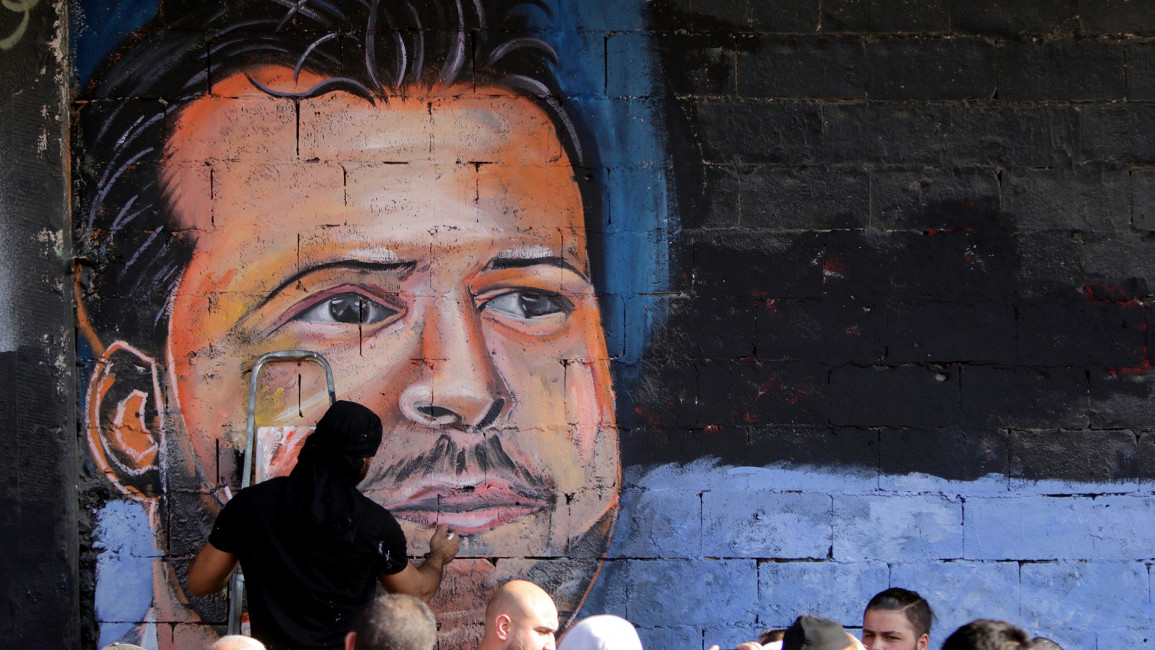Lebanon's revolution has just suffered its 'first martyr'
A Lebanese protester was shot dead south of Beirut on Tuesday evening, after the army announced it had opened fire to disperse protesters blocking roads in Khaldeh south of Beirut, the state news agency said early on Wednesday.
Alaa Abou Fakher, who was a member of the Progressive Socialist Party (PSP) and a local councillor in Choueifat, "succumbed to his injuries" in the Kamal Jumblatt Hospital, according to the National News Agency.
While this was the second death reported in nearly a month of unprecedented anti-corruption protests that have erupted across Lebanon, the manner in which he was killed without provocation has rallied the Lebanese around him as 'the first martyr' of the revolution.
People are rushing to crowdfund to help support his family and murals depicting his portrait already emerged of him in Tripoli, northern Lebanon.
The army said in a statement that it had arrested a soldier after he opened fire in Khaldeh and critically injured Abou Fakher.
Read more: The new patriotism in Lebanon and Iraq
It said that one of its vehicles was passing through Khaldeh when a group of protesters blocked the road, leading to a verbal argument and a scuffle, "which forced one of the soldiers to shoot at and disperse [the protesters]", leading to one protester being wounded.
The leader of the Progressive Socialist Party, Walid Jumblatt, appealed to his supporters to stay calm.
"In spite of what happened, we have no other refuge than the state. If we lose hope in the state, we enter chaos," he said.
Lebanese activists on social media said that Abou Fakher was a critic of Jumblatt despite being a member of the PSP.
Twitter Post
|
Protesters are demanding the ouster of a generation of politicians they see as inefficient and corrupt.
In a televised address on Tuesday night, Lebanese President Michel Aoun outraged protesters by saying that they should head home or emigrate.
Aoun also defended the role of his allies, the Shia movement Hezbollah, in Lebanon's government.
More protesters took to the streets on Tuesday night even before Aoun had finished his TV appearance, closing Beirut’s Ring Bridge and setting tires alight across the country.
One student protester walking to Riad al-Solh Square in Beirut told Lebanon's Daily Star newspaper, "We're trying to bring life back to the revolution, as many people are starting to get tired."
The resignation of the government of Prime Minister Saad Al-Hariri on 29 October saw a reduction in the size of protests and the opening up of previously blocked roads.
However, the government has stayed on in a caretaker capacity and no overt efforts have so far been made to form a new one.
Agencies contributed to this report.
Follow us on Twitter and Instagram to stay connected
Click on Special Content below for our special coverage of Lebanon's protests



